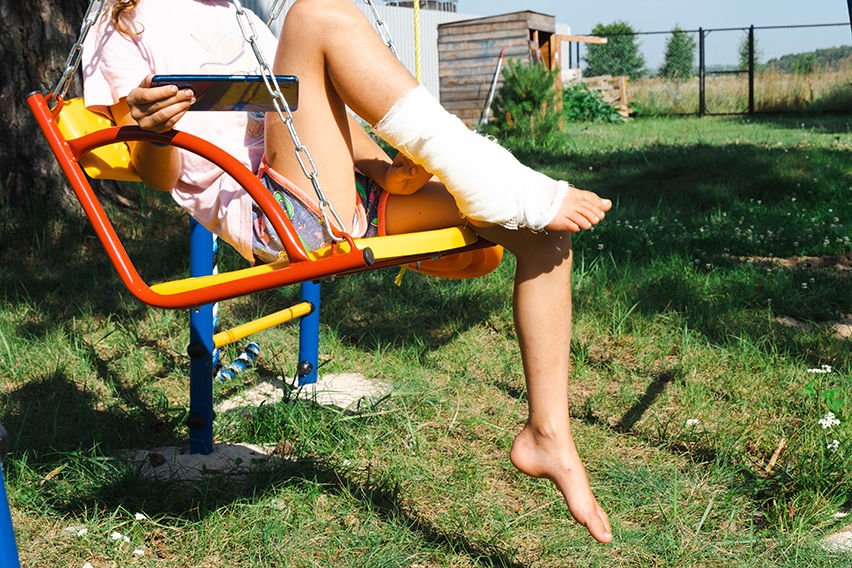Unsafe Swimming Pools: Proving Negligence in Harris County
- Emily Geisler
- 10 minutes ago
- 3 min read

Unsafe Swimming Pools: Proving Negligence in Harris County
When a Drowning or Injury Is the Result of Improper Pool Management
Swimming pools at apartment complexes, community centers and private homes in Northwest Harris County are places for fun, exercise and relaxation. All too often, however, they become scenes of catastrophic injury or even death due to carelessness. In Texas, if someone suffers a pool injury because a property owner failed to provide and maintain a reasonably safe swimming pool environment, that owner can be held liable for the injury under premises liability law. To prove a pool accident case, however, it is vital to know and understand the law regarding negligence and pool safety in Texas.
Proving negligence after a pool accident in Harris County requires knowledge of the very high duty of care on the part of pool owners and operators regarding safety barriers and foreseeable risk.
Property Owner Duty of Care Under Texas Law
Texas premises liability law generally bases the property owner’s duty of care on the status of the person injured on the property (invitee, licensee or trespasser). However, the duty to protect others against the risk of drowning in a pool, and the duties to protect children from dangerous conditions on your property, are both considered very high under the law.
1. The Attractive Nuisance Doctrine
Texas attractive nuisance law is a major issue in child drowning and submersion accidents. Because the law presumes that swimming pools are attractive to young children, the pool owner is liable for injuries to trespassing children on that property if the pool is an “attractive nuisance” that the owner knew or should have known would attract children, and if the owner failed to secure the “nuisance” with reasonable precautions to prevent the injury.
2. Statutory Safety Requirements
Owners of multi-unit rental complexes (apartments and condos) and property owners associations with pools are required to maintain pool enclosures under the Texas Health and Safety Code, Title 5, Part 2 Chapter 166, that meet specific requirements for:
Minimum Height:
48 inches
Gate Requirements:
Self-closing and self-latching gates, with the latch mounted at a height (usually 60 inches or higher) or in a way that is inaccessible to a young child.
Non-Climbable Materials:
No fence, wall, enclosure or feature that is easily climbed.
No Gaps:
No gaps under the fence or through the enclosure that will allow a four-inch diameter sphere to pass through (to prevent toddlers from slipping under an open gate).The failure to meet these black and white requirements is usually an easy way to establish a breach of duty in a personal injury or wrongful death claim.
Types of Negligence Leading to Pool Injuries
Falls on a wet deck are not the only kind of pool accident that can result from negligent pool management:
Unsafe or Unsecured Access:
A broken latch, a gate propped open with a rock, or a fence not meeting minimum height requirements is the most common breach of pool safety duty.
Improper Pool Maintenance:
Dangerous chemical levels that cause eye/skin burns, excessive chlorine or “murky” water that conceals a sudden drop in depth, a broken tile or swimmer in distress.
Defective Pool Equipment:
Violations of the federal Virginia Graeme Baker Pool and Spa Safety Act, by allowing dangerous suction caused by defective drain covers; broken or unsecured ladders; or diving boards that fail.
Failure to Provide Adequate Supervision:
For commercial and public swimming pools, improper or inadequate lifeguard training or not having enough lifeguards on duty.
Slippery Pool Surfaces:
Dangerous algae, broken tiles, worn or slick pool decks left untreated.
Proving Your Claim in Harris County
To prevail on a pool premises liability claim in Texas, your attorney must prove four elements of negligence:
Duty:
The owner owed the injured person a duty of care (status under the premises liability law or attractive nuisance doctrine).
Breach:
The owner breached that duty (e.g., failing to fix a broken latch, or failing to post warning signs or depth information, or violating the state enclosure law).
Causation:
The breach directly caused the drowning or injury.
Damages:
The victim suffered provable harm (in the form of medical bills and lost earnings, pain and suffering, or death).Do not let valuable evidence such as chemical logs and testing, maintenance records, surveillance video or eyewitness testimony disappear. Contact a lawyer as soon as possible.
Statute of Limitations for Pool Injury Cases
The statute of limitations for personal injury and wrongful death in Texas is generally two years from the date of the accident. This same deadline applies to swimming pool negligence cases and is strictly enforced.If you or a loved one has suffered a serious injury or wrongful death from an unsafe swimming pool in Northwest Harris County, it is critical to contact a lawyer immediately to preserve evidence and investigate property conditions. The experienced personal injury lawyers at The Law Office of Shaw Clifford are committed to seeing justice done and negligent pool owners held fully accountable under Texas law.



Comments